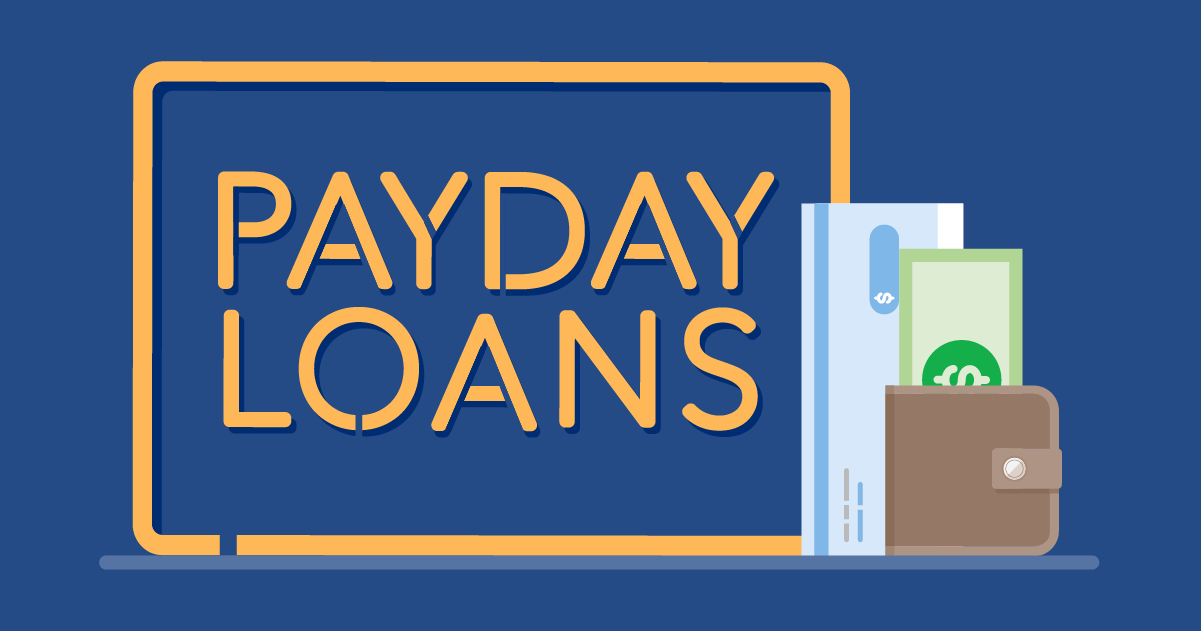Understanding the essential types of loans including Cash Advance Payday Loans
A Comprehensive Guide to Home Loans: Solutions and Options Explained
Charting the world of mortgage can be intricate. Numerous options exist, each with unique attributes and effects for prospective home owners. Recognizing the differences in between traditional and government-backed lendings is necessary. The application process involves precise documentation and pre-approval actions that lots of ignore. As debtors begin on their home-buying journey, understanding exactly how to take care of these obligations successfully could imply the difference in between monetary security and hardship. What methods can equip them on this path?
Recognizing Home Loans: Types and Terms
Recognizing the numerous types of home mortgage and their associated terminology is important for possible home owners, as it furnishes them with the knowledge required to make enlightened monetary choices. Mortgage can be broadly classified right into adjustable-rate and fixed-rate home mortgages. Fixed-rate home loans keep a constant rate of interest rate over the life of the car loan, giving stability in month-to-month payments. Alternatively, adjustable-rate home mortgages include rate of interest that might rise and fall after a first fixed period, potentially causing lower initial payments yet boosted future expenses.
Added terms is necessary for quality. Principal refers to the funding quantity borrowed, while interest is the cost of borrowing that quantity. The regard to the car loan shows its duration, generally varying from 15 to three decades. Recognizing these basic principles makes it possible for possible purchasers to browse the complex landscape of home financing, ensuring they select the right lending option that lines up with their economic situation and lasting objectives.
Standard Finances vs. Government-Backed Loans
A considerable distinction in home financing exists between standard lendings and government-backed car loans, each satisfying various customer needs and scenarios. Traditional loans are not insured or assured by the government and normally call for greater credit history and deposits. They are typically attracting debtors with steady economic backgrounds, as they might use competitive rates of interest and terms.
On the other hand, government-backed financings, such as FHA, VA, and USDA lendings, are created to help certain teams of consumers, including newbie homebuyers and veterans. These loans normally include lower deposit demands and more flexible credit requirements, making them obtainable to a broader series of people.
Eventually, the option in between government-backed and conventional financings rests on the consumer's financial situation, long-term objectives, and qualification, making it vital to thoroughly assess both choices before choosing.
The Duty of Rates Of Interest in Home Funding
Rates of interest play a crucial role in home funding, influencing borrowers' decisions in between variable and set price fundings. The selection in between these options can significantly influence regular monthly payments, affecting general price. Understanding how passion rates work is important for any individual steering through the home mortgage process.
Fixed vs. Variable Rates
Buyers encounter a crucial decision when choosing in between repaired and variable rates, as this option significantly influences the cost of financing over time. Fixed-rate home mortgages supply stability, securing a rates of interest for the life of the financing, which can be helpful in an increasing rates of interest environment. This predictability enables homeowners to spending plan much more properly. On the other hand, variable-rate home mortgages, or adjustable-rate mortgages (ARMs), commonly start with lower preliminary prices that can fluctuate based upon market conditions. While this may lead to lower preliminary payments, consumers deal with the risk of enhanced prices in the future. Ultimately, the option in between fixed and variable rates depends upon individual financial situations, danger resistance, and assumptions pertaining to future rate of interest patterns.
Effect On Month-to-month Payments
When assessing home funding options, the effect of rates of interest on regular monthly payments is a crucial variable to contemplate. Rates of interest directly affect the general price of loaning, affecting just how much a borrower will pay every month. A lower rate of interest lead to smaller sized month-to-month settlements, making homeownership more affordable. Conversely, higher rates can significantly raise monthly responsibilities, possibly straining a homeowner's budget. In addition, the loan term plays an essential role; longer terms may spread payments out yet can lead to paying more rate of interest with time - Cash Loans. Comprehending just how rates of interest interact with funding quantities and terms is essential for customers to make educated economic choices and pick a home loan that aligns with their long-lasting monetary objectives
Mortgage Brokers vs. Straight Lenders: Which Is Right for You?
When taking into consideration a mortgage, prospective consumers have to understand the distinctive duties and responsibilities of home loan brokers and straight loan providers. Each option presents its very own advantages and downsides, which can considerably influence the general cost of funding. An enlightened selection calls for mindful evaluation of these aspects to identify the most effective fit for specific needs.
Duties and roles Defined
Maneuvering the complexities of home financing calls for a clear understanding of the roles and duties of home mortgage brokers and straight loan providers. Fast Cash. Home loan brokers serve as middlemans, connecting consumers with lending institutions. They assess a customer's monetary circumstance, curate finance choices, and guide customers with the application process, often leveraging several lending institution partnerships to safeguard desirable terms. Conversely, straight loan providers, such as financial institutions and credit score unions, provide loans straight to customers. They manage the entire loan process, from application to funding, with a concentrate on their very own items. Each option provides distinct avenues for acquiring financing, making it essential for borrowers to review their preferences and requirements when deciding between engaging a mortgage broker or collaborating with a direct lending institution
Cons and pros Contrast
Selecting in between a home mortgage broker and a direct lender can substantially affect the home financing experience, as each alternative supplies unique advantages and downsides. Mortgage brokers serve as middlemans, providing access to numerous lending institutions and potentially far better rates, while simplifying the financing procedure. However, they might bill fees and depend on compensation structures that can influence their recommendations. On the various other hand, direct loan providers enhance the procedure by using internal car loans, which can result in quicker approvals and less problems. Alternatively, they may have a restricted selection of products and much less flexibility relating to rates. Eventually, the decision hinges on specific choices, monetary circumstances, and the desired degree of support throughout the home loan trip.
Cost Implications Evaluated
While assessing the price ramifications of home loan brokers versus direct loan providers, possible house owners must consider different aspects that can considerably affect their general expenditures. Home mortgage brokers generally charge costs for their services, which can vary significantly, influencing the total finance price. Nevertheless, they often have accessibility to a wider range of finance products and competitive rates, potentially conserving consumers cash in the future. Alternatively, straight loan providers may use an extra uncomplicated process with possibly lower ahead of time expenses, but their finance choices might be restricted. It is crucial for home owners to contrast rates of interest, costs, and terms from both lending institutions and brokers, ensuring they make an educated choice that straightens with their monetary objectives and needs.
The Mortgage Application Refine: What to Anticipate
The home loan application process can usually really feel frightening for lots of candidates. It typically begins with gathering needed documents, including proof of revenue, credit report, and personal identification. Lenders use this info to assess the candidate's economic stability and figure out lending eligibility.
Next off, candidates submit an official application, which might entail filling out online types or providing details face to a knockout post face. During this phase, lenders review various variables, such as debt-to-income ratio and credit report, to choose financing terms.
When pre-approved, the lending institution will carry out a thorough evaluation of the residential property to ascertain its worth lines up with the lending amount. This phase may additionally consist of extra history checks.
After last authorizations and conditions are met, the loan is processed, leading to the closing phase. Recognizing each check that step empowers applicants, making the trip smoother and much more convenient as they move toward homeownership.
Tips for Managing Your Home Mortgage Properly
Successfully navigating the home funding application procedure is just the beginning of a liable financial trip. Handling a home mortgage requires interest to several crucial methods. Consumers ought to develop a clear budget plan that fits monthly home mortgage payments, property tax obligations, and insurance policy. Consistently reviewing this spending plan aids prevent overspending and guarantees prompt payments.

Furthermore, making additional repayments when possible can significantly minimize the financing principal and total interest paid with time. Borrowers need to likewise preserve open lines of communication with their loan provider, specifically in times of financial trouble - Cash Loans. This can result in prospective remedies such as loan modifications or refinancing choices
Ultimately, it is recommended to check credit history on a regular basis. An excellent debt rating can supply chances for far better finance terms in the future. By adhering to these suggestions, home owners can navigate their car loan duties properly, ensuring long-term financial wellness and security.
Frequently Asked Questions
What Are Closing Prices and Exactly How Are They Calculated?
Closing costs encompass fees connected with finalizing a home mortgage, consisting of evaluation, title insurance, and loan origination costs. These expenses typically vary from 2% to 5% of the finance amount, differing based on area and lender.

Can I Qualify for a Mortgage With Bad Credit History?
Yes, individuals with bad credit scores can get a mortgage, though alternatives might be limited. Lenders often call for higher deposits or interest rates, and checking out government-backed finances might enhance possibilities of approval.
What Is Mortgage Insurance policy and When Is It Required?
Home loan insurance safeguards lending institutions versus default and is typically needed when a customer makes a down payment of much less than 20%. It guarantees that lenders recover losses if the consumer falls short to pay off the funding.
Just How Does Refinancing Work and When Should I Consider It?
Refinancing entails changing a current home mortgage with a brand-new one, usually to protect you could try this out a lower rate of interest or adjustment loan terms. Home owners should take into consideration re-financing when rates of interest go down substantially or their financial scenario improves.
What Happens if I Miss a Home Mortgage Payment?
If a home loan repayment is missed, the loan provider usually assesses late charges, reports the delinquency to credit history bureaus, and may start foreclosure procedures if repayments continue to be disregarded, eventually endangering the home owner's residential property.
Fixed-rate home loans keep a regular interest rate over the life of the loan, providing stability in monthly settlements. A substantial distinction in home funding exists in between government-backed fundings and standard financings, each catering to different debtor needs and conditions. In contrast, government-backed car loans, such as FHA, VA, and USDA fundings, are made to help details groups of consumers, consisting of first-time property buyers and professionals. Rate of interest prices play an important function in home financing, affecting consumers' choices between variable and fixed rate loans. Fixed-rate home loans provide security, securing in a rate of interest price for the life of the funding, which can be beneficial in a climbing passion price atmosphere.